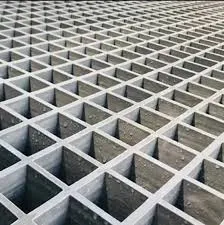
-
 Afrikaans
Afrikaans -
 Albanian
Albanian -
 Amharic
Amharic -
 Arabic
Arabic -
 Armenian
Armenian -
 Azerbaijani
Azerbaijani -
 Basque
Basque -
 Belarusian
Belarusian -
 Bengali
Bengali -
 Bosnian
Bosnian -
 Bulgarian
Bulgarian -
 Catalan
Catalan -
 Cebuano
Cebuano -
 China
China -
 China (Taiwan)
China (Taiwan) -
 Corsican
Corsican -
 Croatian
Croatian -
 Czech
Czech -
 Danish
Danish -
 Dutch
Dutch -
 English
English -
 Esperanto
Esperanto -
 Estonian
Estonian -
 Finnish
Finnish -
 French
French -
 Frisian
Frisian -
 Galician
Galician -
 Georgian
Georgian -
 German
German -
 Greek
Greek -
 Gujarati
Gujarati -
 Haitian Creole
Haitian Creole -
 hausa
hausa -
 hawaiian
hawaiian -
 Hebrew
Hebrew -
 Hindi
Hindi -
 Miao
Miao -
 Hungarian
Hungarian -
 Icelandic
Icelandic -
 igbo
igbo -
 Indonesian
Indonesian -
 irish
irish -
 Italian
Italian -
 Japanese
Japanese -
 Javanese
Javanese -
 Kannada
Kannada -
 kazakh
kazakh -
 Khmer
Khmer -
 Rwandese
Rwandese -
 Korean
Korean -
 Kurdish
Kurdish -
 Kyrgyz
Kyrgyz -
 Lao
Lao -
 Latin
Latin -
 Latvian
Latvian -
 Lithuanian
Lithuanian -
 Luxembourgish
Luxembourgish -
 Macedonian
Macedonian -
 Malgashi
Malgashi -
 Malay
Malay -
 Malayalam
Malayalam -
 Maltese
Maltese -
 Maori
Maori -
 Marathi
Marathi -
 Mongolian
Mongolian -
 Myanmar
Myanmar -
 Nepali
Nepali -
 Norwegian
Norwegian -
 Norwegian
Norwegian -
 Occitan
Occitan -
 Pashto
Pashto -
 Persian
Persian -
 Polish
Polish -
 Portuguese
Portuguese -
 Punjabi
Punjabi -
 Romanian
Romanian -
 Russian
Russian -
 Samoan
Samoan -
 Scottish Gaelic
Scottish Gaelic -
 Serbian
Serbian -
 Sesotho
Sesotho -
 Shona
Shona -
 Sindhi
Sindhi -
 Sinhala
Sinhala -
 Slovak
Slovak -
 Slovenian
Slovenian -
 Somali
Somali -
 Spanish
Spanish -
 Sundanese
Sundanese -
 Swahili
Swahili -
 Swedish
Swedish -
 Tagalog
Tagalog -
 Tajik
Tajik -
 Tamil
Tamil -
 Tatar
Tatar -
 Telugu
Telugu -
 Thai
Thai -
 Turkish
Turkish -
 Turkmen
Turkmen -
 Ukrainian
Ukrainian -
 Urdu
Urdu -
 Uighur
Uighur -
 Uzbek
Uzbek -
 Vietnamese
Vietnamese -
 Welsh
Welsh -
 Bantu
Bantu -
 Yiddish
Yiddish -
 Yoruba
Yoruba -
 Zulu
Zulu
fiberglass pipes and fittings for ship building
Fiberglass Pipes and Fittings for Shipbuilding A Comprehensive Overview
In the maritime industry, the construction of vessels requires materials that can withstand harsh marine environments while offering durability, lightweight characteristics, and resistance to corrosion. Fiberglass pipes and fittings have emerged as a preferred choice for shipbuilding, revolutionizing the way vessels are designed and constructed.
Advantages of Fiberglass Pipes and Fittings
1. Corrosion Resistance One of the primary advantages of fiberglass-reinforced plastic (FRP) pipes and fittings is their exceptional resistance to corrosion. Unlike traditional materials such as steel or aluminum, fiberglass does not corrode when exposed to seawater, chemicals, or other corrosive environments. This property makes it particularly suited for shipbuilding, where pipes are often subjected to harsh marine conditions.
2. Lightweight Fiberglass components are significantly lighter than their metal counterparts. This weight reduction translates to lower overall weight for the ship, which can enhance fuel efficiency and increase cargo capacity. The lightweight nature of fiberglass also simplifies installation and reduces labor costs during the construction process.
3. High Strength-to-Weight Ratio Fiberglass pipes and fittings provide a remarkable strength-to-weight ratio. This means that they can endure high pressures and loads without being overly heavy, making them ideal for various applications on ships, including hydraulic systems, ballast systems, and wastewater management.
4. Flexibility in Design Another advantage of using fiberglass is its versatility in design. Manufacturers can produce a wide range of shapes and sizes, allowing for customized pipes and fittings tailored to specific marine applications. This flexibility also enables designers to create complex layouts that optimize space utilization within the vessel.
5. Thermal Insulation Fiberglass has inherent thermal insulating properties, which can be beneficial for regulating internal temperatures within various compartments of a ship. This insulation helps to minimize heat transfer, contributing to energy efficiency, particularly for systems that require temperature control.
Applications in Shipbuilding
fiberglass pipes and fittings for ship building

Fiberglass pipes and fittings find numerous applications in the shipbuilding industry. They are commonly used in
- Ballast Systems Ensuring the stability of a ship is crucial. Fiberglass pipes are employed in ballast systems that manage water intake and discharge, helping to maintain the vessel's balance and sea-worthiness.
- Wastewater Systems The management of wastewater is essential for all ships. Fiberglass is preferred for sewage and gray water systems due to its resistance to corrosion and ease of maintenance.
- Firefighting Systems Fire safety systems on vessels must operate efficiently under extreme conditions. Fiberglass pipes can be utilized in fire suppression systems, offering reliability and longevity.
- Cooling Systems A ship's engine and machinery require effective cooling. Fiberglass pipes are often used in cooling water systems due to their resistance to temperature extremes and chemical interaction with seawater.
Sustainability Considerations
In recent years, the shipbuilding industry has placed greater emphasis on sustainability. Fiberglass pipes and fittings are manufactured with a lower environmental impact compared to traditional materials. They can be designed to be recyclable at the end of their life cycle, contributing to eco-friendly practices in ship construction. The lightweight nature of fiberglass further supports fuel efficiency, leading to reduced greenhouse gas emissions during the operational lifespan of the vessel.
Conclusion
Fiberglass pipes and fittings have established themselves as a vital component in modern shipbuilding. With their superior corrosion resistance, lightweight nature, and ability to withstand harsh marine environments, they present numerous advantages over traditional materials. As the maritime industry continues to evolve towards more sustainable and efficient practices, the role of fiberglass in shipbuilding is likely to expand, paving the way for innovative vessel designs that meet the demands of today’s and tomorrow's maritime challenges.









